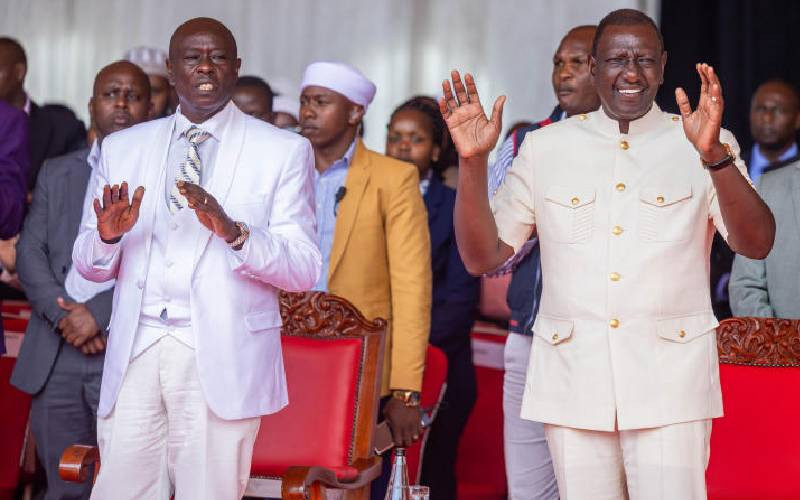×
The Standard e-Paper
Fearless, Trusted News

Nicollo Machiavelli was apt when he said, "If a prince bases the defence of his state on mercenaries, he will never achieve stability or security." Those who read to the end will connect the dots in my deduction that if Rigathi Gachagua's impeachment goes through, President Ruto will have a weak political firewall. Why do I say so?
President Mwai Kibaki's government was shaken when Kijana Wamalwa died on August 23, 2003, barely a year after Kibaki took over government from Moi.